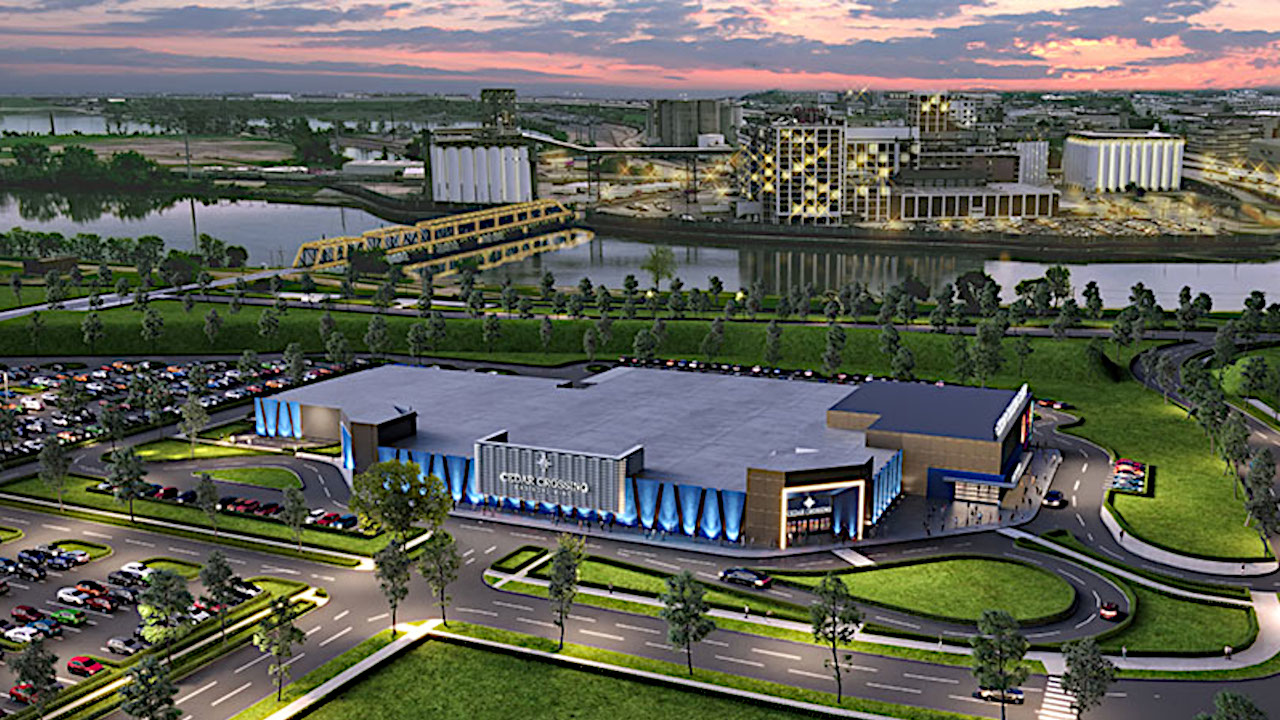
A district court judge has denied a request for a stay on the Iowa Racing and Gaming Commission’s issuance of a casino gaming license for Linn County.
However, the order, issued Wednesday by District Court Judge Michael Schilling, specifically declined to address the merits of a lawsuit challenging the ballot language approved by Linn County voters in November 2021 that authorized gaming in the county. In fact, the order indicated that the lawsuit itself has a chance to succeed on its merits.
Both actions are in response to the lawsuit filed in Washington County District Court Feb. 6 – the same day the Iowa Racing and Gaming Commission (IRGC) voted 4-1 to issue the state’s 20th gaming license to the Cedar Rapids Development Group and the Linn County Gaming Association for a new $275 million Cedar Crossing casino on the city’s northwest side.
Attorney Mike Weinhardt of the Weinhardt Law Firm in Des Moines, which represents the Riverside Casino and its nonprofit arm, the Washington County Riverboat Foundation, said the lawsuit is challenging two facets of the casino license approval – the IRGC’s issuance of a new license for Cedar Crossing and the IRGC’s decision to not issue a declaratory order on a petition filed in November that would have invalidated Linn County’s 2021 vote to approve gaming in the county.
The lawsuit again claims that the wording of the 2021 Linn County ballot measure was faulty under Iowa state code and that, as a result, the IRGC “lacks authority to issue a gambling games license in Linn County.”
Specifically, the petition for judicial review cites the specific wording of the ballot measure.
“Public Measure G unequivocally stated that ‘[i]f approved by a majority of the voters, operation of gambling games with no wager or loss limits may continue,’” the suit states. “However, there have never been licensed gambling games in Linn County. Accordingly, there were no games that the voters could authorize to ‘continue.’ A proposition requiring the approval or defeat of the continuation of gambling games is not a proposition that authorizes the origination of gambling games in the county.”
Mr. Schilling’s ruling Wednesday specifically avoided addressing the legal arguments made in that case.
“Based upon the record presented, the court finds that the Petitioners preliminarily established a reasonable likelihood of success on the merits of their claim that the ballot submitted to voters in November 2021 to approve or disapprove gambling games was defective,” the order indicates.
Later, the order states “the court has a doubt whether the ballot proposition, as written, complies with [state requirements]. These doubts cause the court to preliminarily conclude that the Petitioners have shown a reasonable likelihood of success on the merits.”
Those merits are set to be addressed further in a court hearing slated for April 8.
The IRGC voted 4-1 Feb. 6 to approve a gaming license for a Cedar Rapids casino, and a groundbreaking ceremony was held Feb. 7 for the $275 million Cedar Crossing Casino and Entertainment Center, which is set to be built on vacant land between F and I avenues NW and First and Fifth streets NW.
Construction is set to be completed by New Year’s Eve 2026, developers say.
The decision marked a key turning point for the IRGC, which had twice rejected casino proposals for Linn County, in 2014 and 2017, after commissioners largely sided with opponents who argued the state’s gaming market was saturated and a new Linn County casino would glean market share at the expense of other casinos.
Linn County voters approved a casino referendum in 2013, and a second referendum approved by voters in November 2021 allowed developers to seek a casino license for the county in perpetuity. It’s that second vote that’s now being challenged in court.
The order issued Wednesday also indicates that questions about the wording of the 2021 Linn County referendum are still legally unresolved.
“The Linn County voters approved only gambling games with no wager or loss limits, not a broader spectrum of gambling games,” the ruling says. “If an inconsistency exists between what the voters approved and the license the IRGC issues, the question arises whether the license reflects the will of the voting public regarding which gambling games should be allowed in Linn County.”
The lawsuit also claims that the new Cedar Rapids casino could lead to the loss of up 200 jobs at Riverside Casino, as well as a revenue loss for nonprofit organizations that receive funds from casino proceeds.
“The court acknowledges that all of the potential harms are real and substantial,” the ruling says.